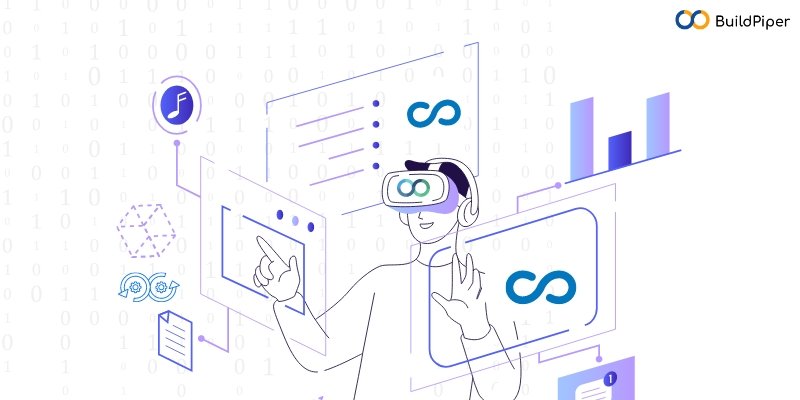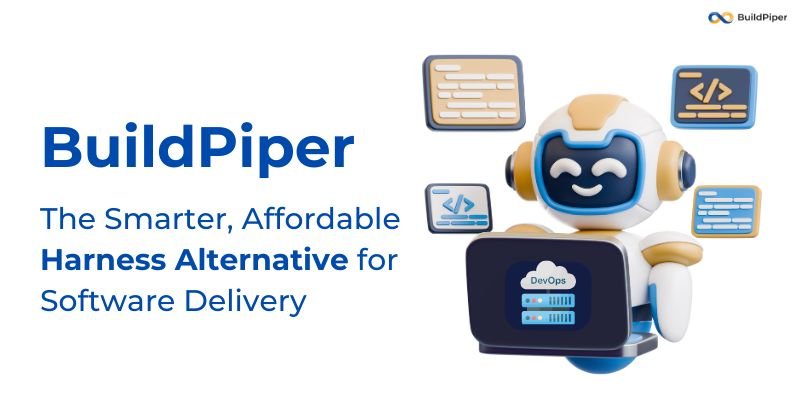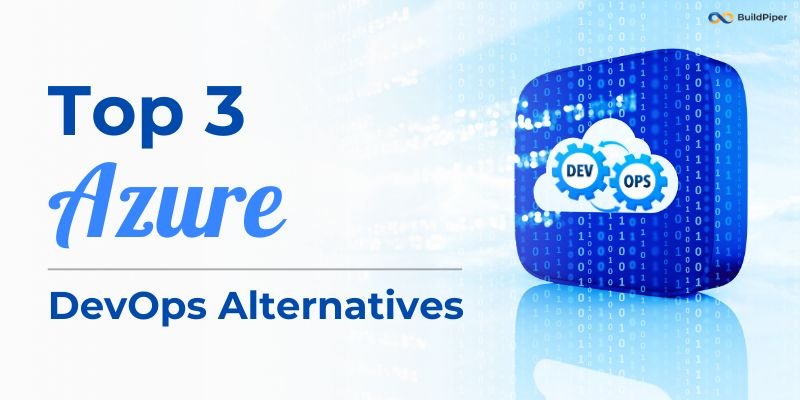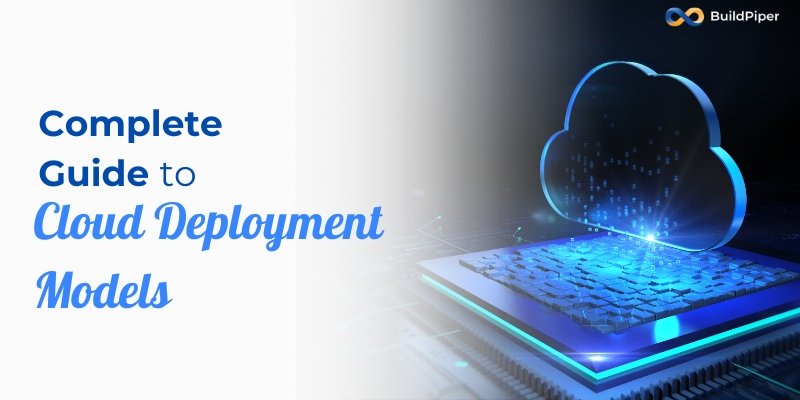In today’s fast-paced and competitive digital landscape, software development and deployment have become paramount for businesses seeking to gain a competitive edge. To ensure the seamless and efficient delivery of software products, DevOps practices have emerged as a game-changer. DevOps, a combination of development and operations, emphasizes collaboration, automation and continuous integration and continuous delivery (CI/CD) processes.
One of the key pillars of successful DevOps implementation is the effective utilization of specialized tools that streamline and automate various stages of the software development lifecycle. These tools not only enhance productivity but also enable teams to achieve continuous delivery, ensuring faster time-to-market and improved software quality.
In this blog, we’ll explore the top three DevOps tools that play a crucial role in enabling continuous delivery. These tools have gained immense popularity and are widely adopted by organizations of all sizes across various industries. So, let’s dive into the world of DevOps and discover the top three CI CD tools that can revolutionize your continuous delivery practices.
What are CI CD tools?
Continuous Integration refers to the practice of regularly merging code changes from multiple developers into a shared repository. CI tools facilitate this process by automatically building and testing the application whenever new code changes are pushed to the repository. This ensures that code changes integrate smoothly with the existing codebase and helps identify issues early in the development cycle.
Continuous Deployment, on the other hand, involves automating the release and deployment of software applications to production environments. CD tools automate tasks such as packaging the application, configuring environments and deploying the application to servers or cloud platforms. This enables faster and more frequent releases, reducing the time between feature development and its availability to end-users.
Some popular CI CD tools include Jenkins, GitLab CI/CD, BuildPiper, CircleCI, Travis CI, TeamCity and Azure DevOps. These tools provide a combination of features and integrations that cater to different development workflows and technology stacks.
Jenkins
Jenkins is a popular open-source automation server that is widely used for continuous integration (CI) and continuous delivery (CD) processes. Jenkins is designed to automate various aspects of the software development lifecycle, including building, testing and deploying applications. It provides a web-based interface that allows users to configure and manage their CI CD Pipelines through an intuitive user interface.
Key Features of Jenkins
- Continuous Integration: Jenkins enables continuous integration by automatically building and testing code changes as they are committed to a version control system. It supports various source code management systems such as Git, Subversion and Mercurial.
- Extensibility: Jenkins has an extensive ecosystem of plugins that extend its functionality. These plugins allow you to integrate Jenkins with a wide range of tools, technologies and services. There are plugins available for source control systems, build tools, testing frameworks, deployment platforms and more.
- Distributed Builds: Jenkins supports distributed builds. This enables teams to distribute build and test workloads across multiple machines or agents. This feature enables faster build times and better resource utilization, especially in large-scale or complex projects.
- Pipeline as Code: Jenkins introduced the concept of Jenkins Pipeline, which allows you to define your build and deployment pipelines as code. This declarative approach makes CI CD Pipelines versionable, maintainable and easier to understand. Pipelines can be written using either the Groovy-based Scripted Pipeline or the more modern Declarative Pipeline syntax.
- Easy Configuration: Jenkins provides a user-friendly web interface for configuring jobs and pipelines. It allows you to define build steps, specify triggers, set up environment variables and manage build artifacts. Jenkins also offers a “Job DSL” feature that allows you to define job configurations using Groovy scripts.
[Good Read: The Art Of CI/CD Optimization: Mastering Techniques For Workflow Efficiency!]
BuildPiper
DevOps tool- BuildPiper is a developer and engineering teams’ centric, fully-featured, end-to-end Kubernetes & Microservices Application Delivery Platform. It enables teams to onboard & securely manage Kubernetes & Microservices applications in a seamless manner. Also, the platform empowers teams with the ability to run zero-touch, fully automated & secured CI/CD Pipelines.
BuildPiper has everything you need to deliver applications in compliance with your infrastructural requirements. It provides a robust foundation for growth and scalability with modern approaches of CI, CD, GitOps, Observability, Compliance and much more. BuildPiper seamlessly integrates with industry-leading tools like JIRA, SLACK, MS Teams, EFK, Prometheus/Grafana etc.
This DevOps tool-BuildPiper empowers DevOps teams with incredible features such as Managed Microservices, Managed Kubernetes and Secured CI/CD Pipeline setup with complete security, observability & compliance.
Key Features of BuildPiper
DevSecOps: Security across all Stages of Deployment
BuildPiper enables teams to conduct regular security audits and perform automated CI checks in the pipeline stages. BuildPiper enables seamless secrets management providing the ability to manage security from a centralized console to teams with a Key-Value pair! Additionally, BuildPiper supports integrations with the best industry-standard tools for security which include,
- Integration with HashiCorp Vault, AWS Secrets Manager, Azure Secrets Manager for Secrets Management
- Trivy for Container Images Scanning & License Scanning
- GitLeaks for Credentials Scanning
- Owasp Dependency Check to improve software security
- Sonar Scanner to analyze the source code quality
This DevSecOps platform allows teams to develop robust applications with built-in security right from the start. The DevOps tool-BuildPiper enables all of this by embedding security in all stages of the DevOps lifecycle.
Observability with Detailed Insights
BuildPiper provides detailed insights into all Services( right from build to deployment), Kubernetes resources and stages of Pipelines delivery via smart dashboards. These details help the development teams in analyzing and enhancing the application performance. BuildPiper enables teams to,
- Obtain 360-degree cluster view via Service Kubernetes Dashboard
- Acquire complete visibility into the cluster resources.
- Get data like what is the current replication of the service.
- View details of events and containers of the pods.
- Monitor the performance, health status and availability of pods.
Enabling Seamless & Flexible CI/CD Operations
Equipped with feature-rich, secure delivery & setup of CD Pipelines for Macro & Micro builds & deployments, BuildPiper provides,
- Automated and customizable CI gate checks
- Comprehensive CI analysis with multiple language support
- Support for conditional executions of Jobs & Stages
- JIRA integrations, API integrations and Microsoft teams integrations to notify pipeline issues for seamless application delivery.
- Easy to understand UI and YAML view of the pipeline workflow consisting of multiple Jobs & Stages.
- The ability to restart/re-run the pipeline to resolve pipeline issues.
GitOps Integration to Accelerate the App Delivery Process
BuildPiper supports comprehensive GitOps-based workflow orchestration to make the software delivery process developer-centric. With essential check gates and approval, the platform enables seamless & faster deployments with standardization. Right from build, to quality validation and ultimately releasing the source code to the production, developers can manage the complete application lifecycle, through git workflows and events.
- Event Listener: You can create event listeners to observe events occurring within the Git repo.
- Actions: Define actions that need to get triggered, once the listener receives the request.
Seamless Microservices Management
The approach to Managed Microservices with BuildPiper is a perfect combination of automation, standardization and complete observability. The platform supports a low-touch, frictionless development-to-deployment experience. It makes your Microservices App Delivery go from Days to Minutes! Right from onboarding services to configuring the build details till deployment to production and even after deployment, BuildPiper takes care of everything. Empowered with features such as Managed Microservices, this Microservices & DevSecOps platform helps enterprises ensure seamless, secure and compliant Microservices deployment.
CircleCI
CircleCI is a cloud-based continuous integration and continuous delivery (CI/CD) platform. It helps automate the build, test and deployment processes for software applications. It provides developers and development teams with a scalable and efficient solution to streamline their software development workflows.
CircleCI supports a wide range of platforms, including Linux, macOS, and Windows, enabling developers to build and test applications across different operating systems. It provides flexibility for deploying applications to various cloud providers, on-premises servers or other deployment targets.
Key Features of CircleCI
- Scalable Infrastructure: CircleCI offers a cloud-based infrastructure where developers can run their builds and tests. It provides a scalable and distributed environment to accommodate projects of different sizes and complexities.
- Configuration as Code: CircleCI allows developers to define their build and deployment processes using a configuration file written in YAML. This configuration file called the .circleci/config.yml, specifies the steps, dependencies and environments required for the CI/CD pipeline.
- Pre-Built Docker Images: CircleCI leverages Docker containers to isolate builds and dependencies. It provides a wide range of pre-built Docker images that include popular programming languages, tools and frameworks. Developers can choose the appropriate image for their project and customize it as needed.
- Insights and Analytics: CircleCI offers real-time and historical build logs, test reports and performance metrics. It provides insights into build status, test results and performance trends, helping developers identify issues and optimize their CI/CD pipelines.
- Security and Permissions: CircleCI offers granular access controls and permissions to secure the CI/CD environment. It supports integration with identity providers like GitHub and Bitbucket. This allows developers to manage access based on their existing authentication mechanisms, enabling secure DevOps implementation.
In a Nutshell
Here, we’ve explored some of the top CI/CD tools available, each offering a unique set of features and integrations to streamline the development and deployment process. From the robust automation capabilities of Jenkins to the all-in-one DevSecOps platform offered by BuildPiper, these tools have revolutionized the way software is built, tested and deployed.
With continuous integration, developers can collaborate efficiently and catch bugs early, ensuring code integration is smooth. By automating crucial tasks like building, testing and deploying applications, DevOps tools free up developers’ time and improve overall efficiency. This helps in successful DevOps implementation. These DevOps tools empower teams to focus on innovation, code quality and user experience, rather than manual and error-prone processes.
As technology continues to evolve, it is essential to stay up-to-date with the latest advancements in CI/CD tools, as they play a crucial role in driving successful software delivery. Embracing a CI/CD mindset and adopting the right tool is important. Doing this can significantly enhance development practices, speed up releases and ultimately deliver better software to meet the ever-growing demands of the digital world.









